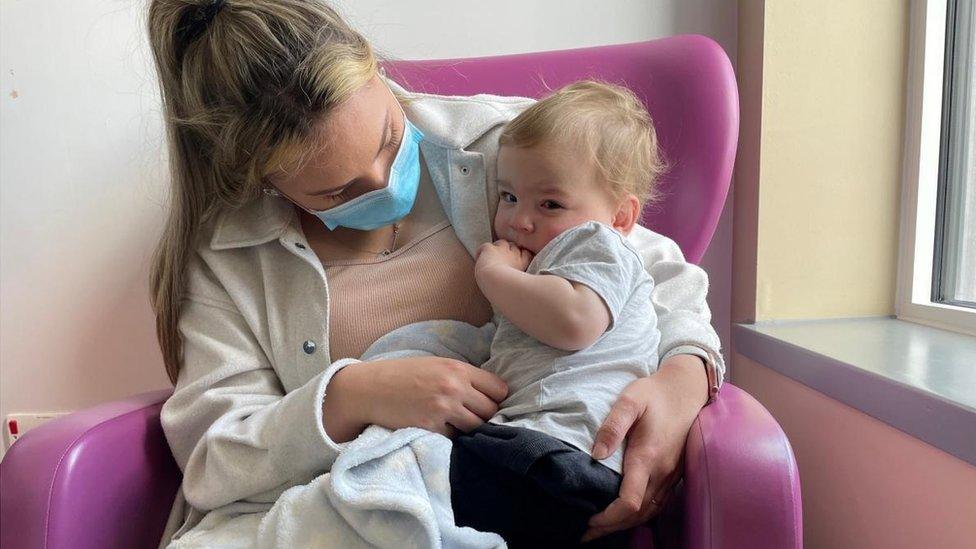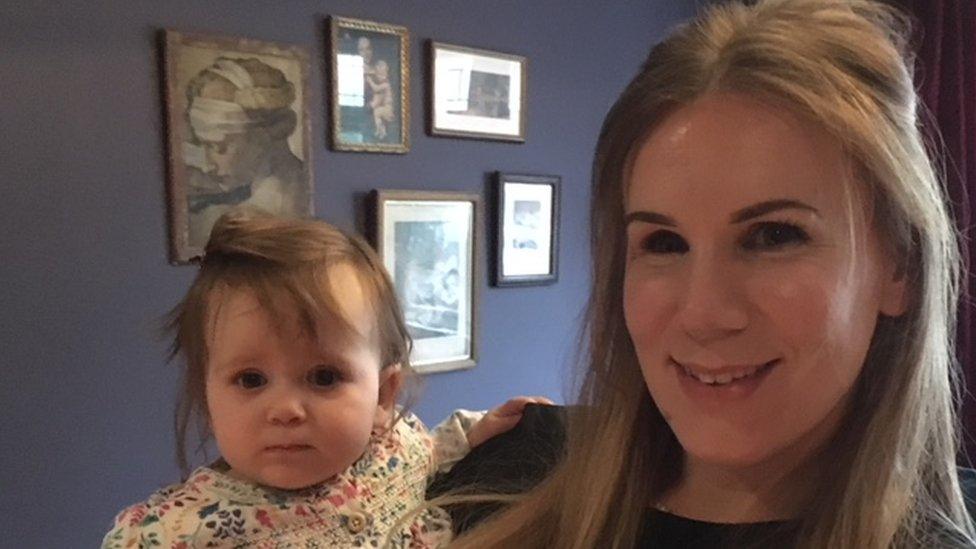Genetic tests to detect rare cancer in unborn babies rolled out
- Published

The test identified cancer in baby Oscar during trials
A new test that can test unborn babies for a rare form of eye cancer is set to be rolled out across the NHS.
Developed by staff at Birmingham Women's and Children's NHS Foundation Trust, the test can identify genetic mutations linked to retinoblastoma.
The cancer usually affects children under five and if left untreated can lead to sight loss and death.
NHS chief executive Amanda Pritchard said the test had the potential to save hundreds of lives.
The tests will be offered to pregnant women with a family history of the disease and are able to predict with almost 100% accuracy whether the baby would develop retinoblastoma and even whether the disease might develop in their siblings.
A blood sample is taken and analysed for a mutation in the RB1 gene. About nine in 10 children born with this mutation develop the cancer.
Detecting the mutation before birth means babies can be treated as early as possible.
'Ready, set, go'
Siani Bainbridge, from County Durham, took part in the trial and discovered her son, Oscar, had the faulty gene.
Just a week after he was born, he started treatment which involved chemotherapy and laser therapy.
"Given that the tumours were quite severe when he was born, the fact he could be treated straight away definitely affected his outcome," Ms Bainbridge, 22, said.
"It was nice to know the day he was diagnosed, it was ready, set, go."
While doctors could not save the sight in one eye, he did not have his eyeball removed and kept his sight in the other eye.
The tests will be rolled out across the NHS this week and are expected to identify the cancer in 50 babies each year.

Follow BBC West Midlands on Facebook, external, Twitter, external and Instagram, external. Send your story ideas to: newsonline.westmidlands@bbc.co.uk, external
Related topics
- Published8 May 2011
- Published28 November 2018
